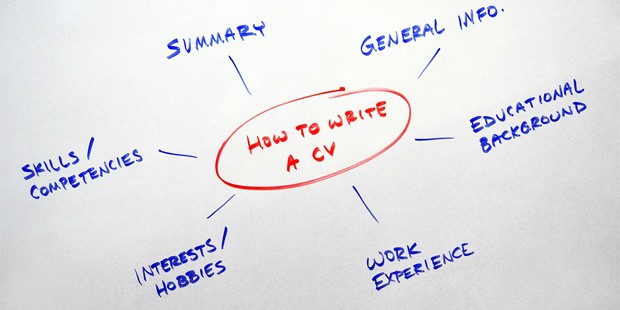7 Invaluable Tips for Fresh Graduates

The life of a fresh graduate can be full of joy and excitement. Nothing beats the elation of receiving a diploma after enduring years of difficult exams and complicated paper works. But life isn’t all roses after graduation. In fact, it only gets harder. Although most graduates have already made up their minds on what paths they’re going to take, there are a few that find it difficult to adjust to life after school. If you’re part of this group, put your worries aside and check out these seven invaluable tips to help you navigate both life and career post-graduation:
1. Build a strong resume
Building a strong resume is one aspect that some graduates tend to overlook and often think that having a diploma alone will help them land their dream job. Fresh graduates actually have the most disadvantage when it comes to job hunting. They don’t only lack the experience but also face competition from job seekers who already possess years of experience in multiple industries. In this case, only a strong resume can convince employers to hire graduates who have minimal to zero work experience.

If you weren't a student who participated in numerous co-curricular activities or joined any school organization (fraternity or sorority included), you can still create a strong and convincing application letter and resume. Just make sure to keep it short, concise, and detailed. Since you have no work experience to show for, employers will be zooming in on your skills. List each skill you have, whether it be hard or soft skills, and add short descriptions. Other vital information such as educational background and contact details should be included, resulting in a resume that won’t exceed two pages.
2. Find a job that suits your skills
Fresh grads often tend to apply for jobs that are readily available compared to jobs that actually suit their skills. Although it is understandable that job availability can vary from city to city, sending a job application to every company within a 10-mile radius doesn’t always translate to a job offer or let alone an interview. The luck game simply doesn’t apply in job hunting, so to help you save time and energy, apply for jobs that suit your strongest skills.
For example, if you’re good at writing apply for a newspaper company or a content marketing firm. Another example would be applying for teaching, sound engineering, and directing/conducting jobs if you have a knack for music. Take note that your degree may not always go together with your skills, so look for a job that you matches with skills you currently have. You can always expand your skillset while working on a full-time job.
3. Attend trainings or short courses
Attending trainings or short courses is one important life advice for college graduates who don’t have plans to look for work after graduation. This tip is highly recommended since it doesn’t only continue the learning process but also helps build a strong resume and creates an opportunity to build connections. Outside of on-the-job trainings that are included in school curriculums, hundreds of job skills trainings/short courses are also available which are often sponsored by government institutions or even companies themselves.
These trainings usually come with an affordable fee and don’t take more than a few weeks to complete. Most trainings also come with a certificate which is very helpful when going job hunting. A resume submitted together with a training certificate significantly increases the chances of getting hired.
4. Take advantage of connections
Another advice for graduates that can be useful long-term is taking advantage of connections. Having a few can be very beneficial if you want to build a long and steady career. Remember that connections don’t only relate to finding better job opportunities but also to finding mentors. Navigating the professional world as a 20-year old can be overwhelming for many, so finding the right person that can help you with the ins and outs of your industry is essential.

Building connections doesn’t stop when you’ve landed your first job or taken your first apprenticeship role. Your network will exponentially grow once you’ve added more skills and more experience to your portfolio. Once this happens, it will be much easier to take full control of your career.
5. Think hard if you plan to pursue higher education
It’s not surprising that more employers today are looking to hire job applicants with postgraduate degrees. Postgraduate programs train students to deal with much more complex tasks and also impart knowledge and skills that are never taught in college. With this, students with a master’s or PhD degree can easily adjust to a high-pressure work environment on a regular basis. Salaries are also much higher compared to salaries offered to fresh graduates.
The lure of a higher salary and better job position can be very tempting, but it is also very expensive. Tuition fees for postgraduate programs are twice as much compared to college courses, and this doesn’t count other expenses that go with taking a master’s or PhD program. If you haven’t managed to pay off your student debt and if you don’t have an emergency fund ready, you might as well postpone pursuing higher education and work a regular job in the meantime. Medicine and legal degrees are also forms of higher education; again, think hard and do some extensive financial planning if you intend on pursuing these degrees.
6. Consider in-demand occupations in your industry
In-demand professions don’t just end with doctors and lawyers. Whatever course you’ve graduated from, there are always countless jobs available in the industry you’ll soon be working in. You simply have to do a little bit of research in finding the most in-demand jobs in the current job market. These jobs will help you land employment faster and even get an adequate starting pay if you’re lucky. Take note, in-demand jobs from the previous years may no longer see similar levels of demand today so be diligent with your research.
7. Be proactive

Although it’s completely fine to take a long vacation after you’ve graduated college, it’s never advisable to simply ignore your adult responsibilities after getting that degree. Be proactive and keep in touch with the community even if you’re not planning to look for work just yet. Getting involved in charity work or social programs will not just help build relationships but also develop character. Also, take the opportunity during your extended time-off to develop and re-learn the skills you learned in college.
Taking on life’s challenges as a fresh graduate can be tough, but it hasn’t to be that way as long as you know you’re what you’re doing and know where you’re headed. The seven tips listed above will surely help you out.









